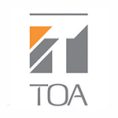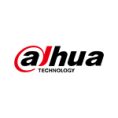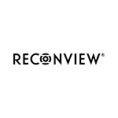Navigating Compliance in Access Control: Ensuring Your Systems Meet Legal Standards in Nigeria
In Nigeria, where both technological advancement and regulatory frameworks are rapidly evolving, ensuring that access control systems comply with legal standards is crucial for businesses. From protecting physical assets to securing sensitive data, compliance not only safeguards against legal repercussions but also reinforces an organization’s commitment to security.
Understanding Compliance in Access Control
Compliance Defined: In the context of Nigerian business operations, compliance in access control involves adhering to national laws and guidelines that govern security and data protection. This adherence ensures the protection of physical assets and the integrity of personal and corporate data.
Key Nigerian Regulations Affecting Access Control:
- Nigeria Data Protection Regulation (NDPR): Similar to the GDPR, the NDPR mandates the protection of personal data and affects how organizations collect, store, and handle this data.
- Cybercrimes (Prohibition, Prevention, Etc.) Act 2015: Impacts measures that organizations must take to secure their digital infrastructures against cyber threats.
Understanding these regulations is essential for strategic planning and operational compliance in access control management across Nigerian businesses.
Common Compliance Challenges in Access Control Systems
Managing compliance in the realm of access control presents specific challenges in Nigeria:
- Integration Issues: Many Nigerian businesses operate both modern and legacy systems, which can complicate compliance with current regulations.
- Data Protection: Given the stringent requirements of the NDPR, ensuring the security of data captured and stored by access control systems is a significant challenge.
- User Management: Ensuring that access permissions are correctly managed and up-to-date is critical, especially with high employee turnover rates in some sectors.
Solutions to Overcome Compliance Challenges
To address these challenges, Nigerian businesses can employ a combination of technological solutions and management strategies:
- Regular Audits and Assessments:
- Conducting routine security audits helps identify non-compliance issues before they escalate.
- Automated tools can streamline the audit process, ensuring continuous compliance with policies.
- Enhanced Data Security Measures:
- Implement data encryption both in transit and at rest to protect sensitive information.
- Advanced authentication methods, including biometrics and multi-factor authentication, should be used to secure access points.
- Role-Based Access Control (RBAC):
- RBAC simplifies the management of user permissions by assigning rights based on the role within the organization.
- This approach aligns with NDPR guidelines by limiting access to personal data based on necessity.
Best Practices for Ensuring Compliance
Staying ahead of compliance requirements involves several best practices tailored to the Nigerian regulatory environment:
- Stay Informed on Legislative Changes:
- Keep abreast of changes in Nigerian and international law that affect data protection and cybersecurity.
- Regular training for IT and security teams on compliance requirements is essential.
- Collaboration with Legal and Compliance Teams:
- Regularly review and update access control policies with the assistance of legal experts to ensure they reflect the latest legal requirements.
- Organize cross-functional teams to address compliance effectively, ensuring all aspects of access control are covered.
Leveraging Technology to Enhance Compliance
Technology plays a critical role in ensuring compliance, particularly in automating tasks and enhancing security measures:
- Compliance Management Software:
- Use software designed to manage compliance effectively, automating monitoring and reporting tasks required by Nigerian regulations.
- Ensure that software vendors comply with NDPR and other relevant standards.
- AI and Machine Learning:
- Implement AI to analyze access patterns and predict potential compliance breaches, automating responses to mitigate risks.
- Machine learning algorithms can also enhance the security of biometric data used in access control systems.
Case Studies: Compliance in Action
- Telecommunications Operator: A leading telecom operator in Nigeria revamped its access control systems to comply with NDPR, focusing on securing customer data and enhancing perimeter security.
- Financial Institution: A major bank in Nigeria integrated advanced biometric systems to meet compliance standards set by the Central Bank of Nigeria, focusing on protecting financial data and preventing fraud.
Conclusion
For Nigerian businesses, ensuring that access control systems are compliant with legal standards is more than a regulatory requirement—it’s a strategic imperative. By adopting best practices, leveraging the right technology, and staying informed about legal changes, businesses can ensure their access control systems are not only compliant but also effective in protecting their assets.
Adhering to these guidelines helps businesses avoid significant penalties, safeguard their reputation, and maintain the trust of their customers and partners. As regulations continue to evolve, staying proactive in compliance management is key to navigating the complexities of access control in Nigeria’s dynamic regulatory landscape.

















